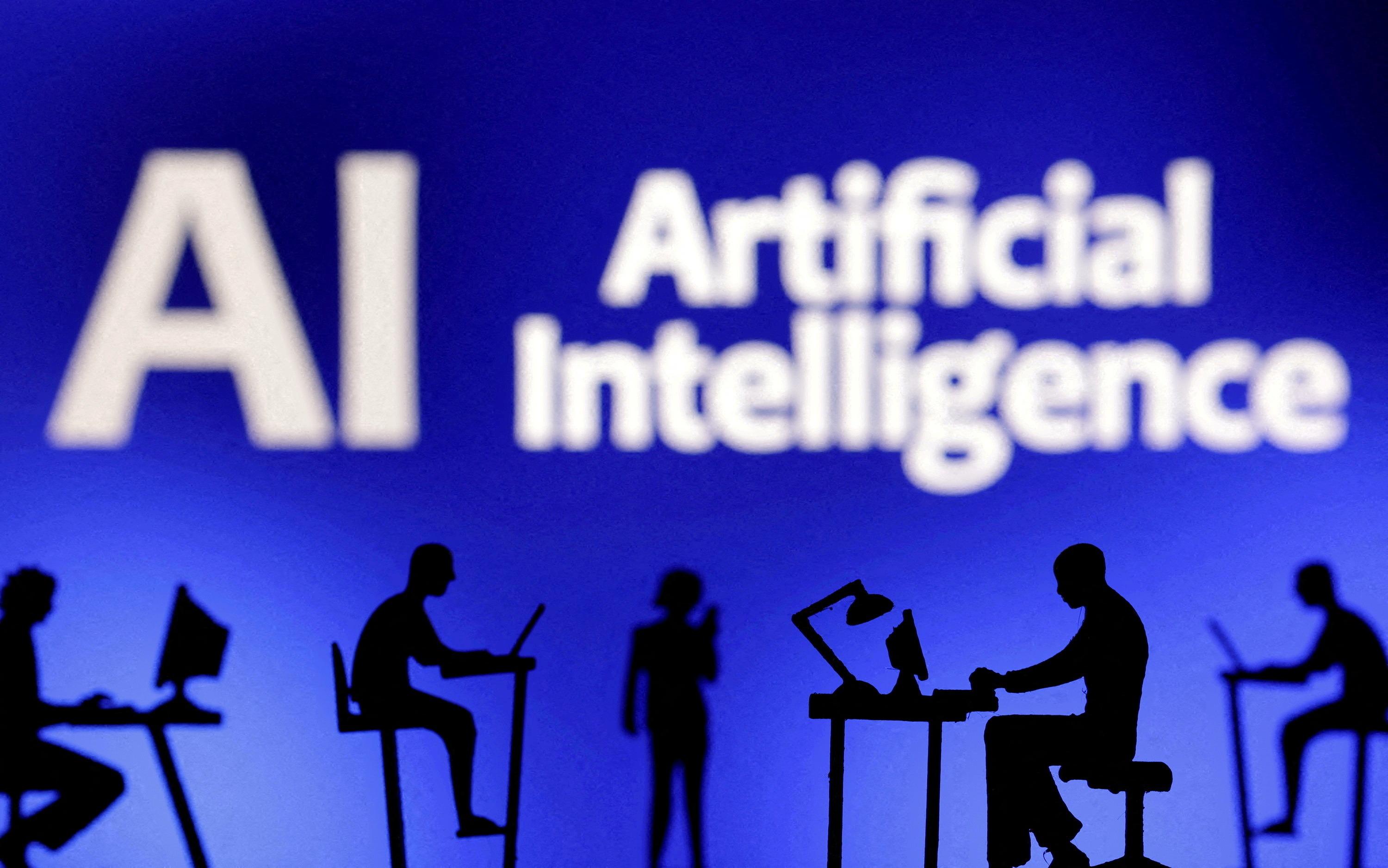 Figurines with computers and smartphones are seen in front of the words "Artificial Intelligence AI" in this illustration taken on Feb 19, 2024. (PHOTO / REUTERS)
Figurines with computers and smartphones are seen in front of the words "Artificial Intelligence AI" in this illustration taken on Feb 19, 2024. (PHOTO / REUTERS)
The United Nations General Assembly on Thursday unanimously adopted the first global resolution on artificial intelligence that encourages countries to safeguard human rights, protect personal data, and monitor AI for risks.
The nonbinding resolution, proposed by the United States and co-sponsored by China and over 120 other nations, also advocates the strengthening of privacy policies.
"Today, all 193 members of the United Nations General Assembly have spoken in one voice, and together, chosen to govern artificial intelligence rather than let it govern us," US Ambassador to the United Nations Linda Thomas-Greenfield said.
In November, the US, Britain and more than a dozen other countries unveiled the first detailed international agreement on how to keep artificial intelligence safe from rogue actors, pushing for companies to create AI systems that are "secure by design"
The resolution is the latest in a series of initiatives - few of which carry teeth - by governments around the world to shape AI's development, amid fears it could be used to disrupt democratic processes, turbocharge fraud or lead to dramatic job losses, among other harms.
READ MORE: G7 industry ministers commit to 'safe and reliable' AI
"The improper or malicious design, development, deployment and use of artificial intelligence systems ... pose risks that could ... undercut the protection, promotion and enjoyment of human rights and fundamental freedoms," the measure says. In November, the US, Britain and more than a dozen other countries unveiled the first detailed international agreement on how to keep artificial intelligence safe from rogue actors, pushing for companies to create AI systems that are "secure by design".
Europe is ahead of the United States, with EU lawmakers adopting a provisional agreement this month to oversee the technology. The Biden administration has been pressing lawmakers for AI regulation, but a polarized US Congress has made little headway.
READ MORE: EU lawmakers approve landmark AI Act
In the meantime, the White House sought to reduce AI risks to consumers, workers, and minorities while bolstering national security with a new executive order in October.
US National Security Advisor Jake Sullivan said it took nearly four months to negotiate the resolution, but that it gave the world "a baseline set of principles to guide next steps in AI’s development and use".


